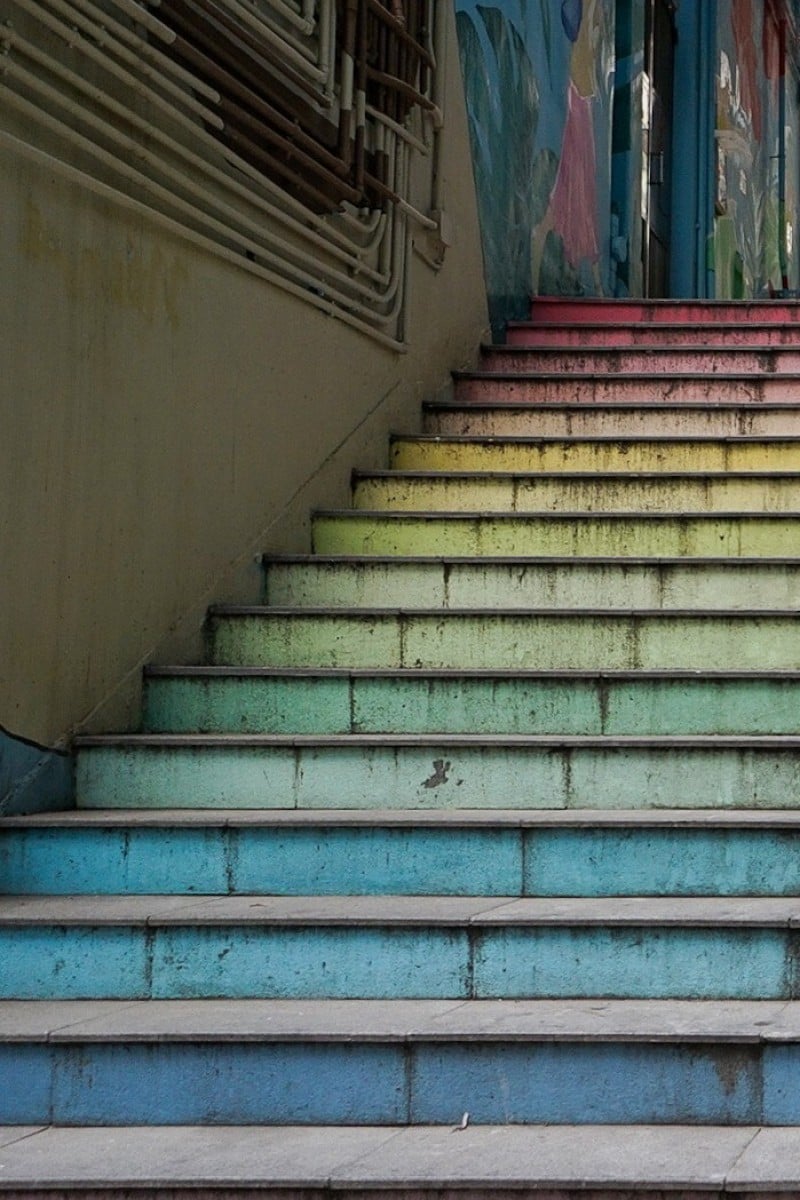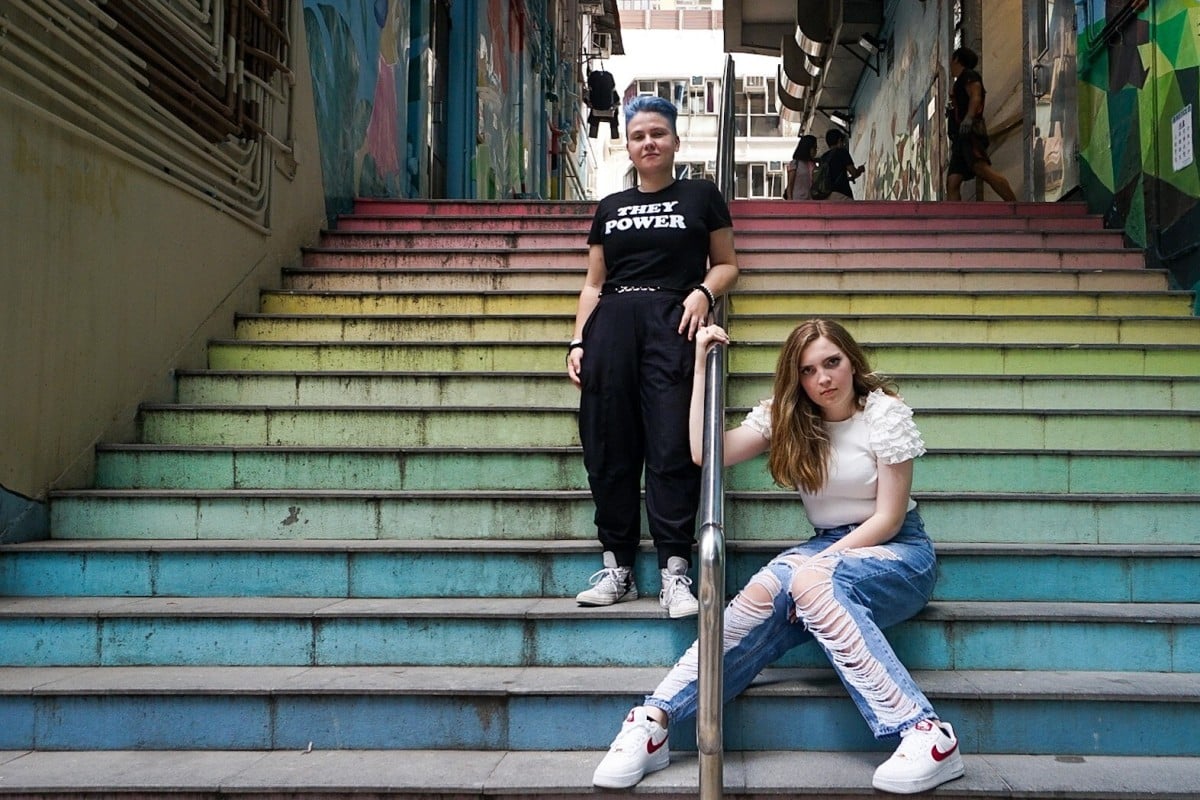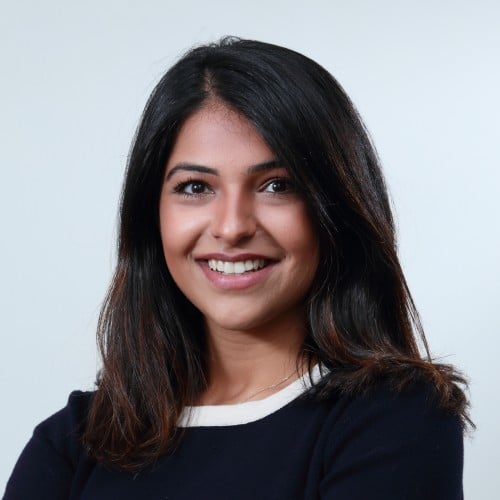
'There are a lot of kids that don’t fit the standard male or female identity': LGBTQ+ teens in Hong Kong on prejudice and education
- In a 2016 study by the Equal Opportunities Commission, 88 per cent of queer teenagers in the city say they have faced discrimination and hostile treatment from classmates and teachers
- InclusivityHK uses campaigns, webinars and education outreach to make life better for LGBTQ+ youth
 These teens are hoping to make a change and make life better for LGBTQ+ teens in Hong Kong.
These teens are hoping to make a change and make life better for LGBTQ+ teens in Hong Kong.“Growing up, I knew I was different,” says 17-year-old Samsāra Sylvester, as she brushes her sweeping blonde hair away from her face. “I wasn’t overtly strange, I was just, you know, different. I wasn’t into sports; I refused to participate in ‘masculine activities’; and it ended up meaning that I had no friends and I was excluded a lot.”
Today, Samsāra is excited about a sleepover that she is hosting for her friends later in the day, and busy thinking about her university applications and A-level exams, just like any other student her age. “I hope they get cancelled next year too,” she jokes.
But the hurdles that Samsāra has faced growing up have been much harder than most teens.
Samsāra – Sam to her friends – was born male. Eighteen months ago, she made the decision to “live [her] truth” and begin living as a female.
Talking points: Should same-sex marriage be legal in Hong Kong?
June and the summer months have become synonymous with a diverse global calendar of Pride events, during which LGBTQ+ people address the prejudice and challenges faced by the community.
This year, Covid-19 has changed this landscape; events are happening online or not at all.
But Hong Kong’s vibrant LGBTQ+ youth are not letting these restrictions get in the way of their activism. They are taking it upon themselves to raise awareness, promote inclusivity and educate others about issues faced by their community.
How to talk to someone with different political views without getting nasty
Samsāra’s classmate, Dasha Okolovich, also 17, is bisexual and non-binary, which means they are not exclusively masculine or feminine. Dasha’s preferred use of pronouns is they and them.
Dasha is on the committee of a student-led group, InclusivityHK, whose goal is to make Hong Kong’s educational environment more inclusive for queer teenagers. Through campaigns, webinars, and education outreach, they hope to completely eradicate the discrimination faced by LGBTQ+ youth.
According to a 2016 study by the Equal Opportunities Commission, 88 per cent of LGBTQ+ students in Hong Kong face discrimination and hostile treatment. It is often their peers and, in some cases, teachers, principals and even counsellors that contribute towards this treatment.
Samsāra Sylvester said she has been bullied and received death threats, just for being herself.
“I have thick skin, but the bullying has been shocking,” says Samsāra, adding that she changed schools twice because of it. “It’s been rough and I’ve really had a hard time. I’ve been called gay so many times and I’ve received death threats. It has been so damaging.”
As a result of the bullying, Samsāra left the school she was attending in Hong Kong when she was 12, and enrolled in an all-boys boarding school in Australia. The abuse she experienced there was “horrific” and she moved back to Hong Kong just two years later, where she started attending the school that she is currently enrolled in.
It was at this school that Samsāra began the transition to living as a female.
“I finally made the decision for myself that I was so done with the old life,” she says. She is the first person at her school to transition from living as male instead of female, paving the way for anybody else who wishes to do so in the future.
“It will be 10 times easier for them,” she says. “I told [the school], ‘you can’t stop me, I’m doing this’ and began growing out my hair, and wearing different clothes.”
Samsāra’s teachers, friends and family have been very supportive, and she has recently moved to an all-girl’s “house” at the school. She says that the school is “great and really doing their best”. However, some parents haven’t been as accepting, and as a result, she still cannot use female toilets. She hopes this can change over time.
Dasha, who is from Russia where there are strict anti-gay laws, remembers feeling “terrified” when they hit puberty.
“I didn’t want a chest at all,” says Dasha. “I cried about it to myself and I was so confused about it.”
They decided to Google why they felt that way, but did not find any answers. Later that year, Dasha developed Lupus, an autoimmune disease in which the body’s immune system attacks its healthy tissue.
Dasha spent the next couple of years worrying about medication and surgeries, and suffered from depression. In 2015, in search of a fresh start, they moved to a boarding school in Hong Kong.
Dasha Okolovich wanted a fresh start, so they moved to boarding school in Hong Kong from Russia.
“In Russia, everything queer is really bad. We just don’t talk about it,” they said. “So when I moved here, I remember thinking that I would probably meet gay people for the first time, so I should learn more about it.”
Dasha began to watch YouTube videos of LGBTQ+ influencers, and recognised a lot of themselves in the videos.
“It made me uncomfortable, because I was taught to be uncomfortable with it,” they said. “But I said to myself that I was going to have to sit there and watch.”
‘Religious freedom’ is not an excuse for denying rights
Over the next few years, Dasha slowly started presenting themselves as more “androgynous”, cutting their hair short, and wearing a chest binder.
“Wearing a binder for the first time was such an emotional experience for me,” says Dasha, adding that their room is full of pride flags. And about a year ago, Dasha decided to change their pronouns.
“Most people have been okay with it,” they said. “But there are some who don’t get it, or just don’t make the effort. I still get called ‘she’ on purpose a lot.”
Samsāra agrees, and says that it took sometime for people to come to terms with her transition.
“When you transition, your family transitions with you,” says Samsāra. “Honesty is the best policy no matter how worried you are about the reaction. Having to hide who you are is not a formula for happiness.”
Hong Kong: It’s about time we have LGBT laws
“You will need your family’s, friends’ and your school’s support to navigate,” she says. “People will surprise you with how kind they can be.”
Through InclusivityHK, Dasha hopes to create a safer, more open world for people like themselves and Samsāra.
“I would like to see LGBTQ+ issues being spoken about in sex education classes,” says Dasha, adding that the current syllabus is “not sufficient.” They want LGBTQ+ representation in school textbooks too. “I recently published an article about a transgender man during the American Civil War. We should be learning about these people at school,” says Dasha.
In Hong Kong, LGBTQ+ rights aren’t sufficiently represented at a government level. Same-sex marriage, or civil partnerships, is still illegal, with the High Court granting few equalities - such a joint taxes and spousal visas - in a salami slice way. And in 2018, the Hong Kong Public Libraries’ decided to hide 10 children’s books featuring same-sex parents and other LGBTQ+ themes from public view, causing outrage among the community.
But the mindset of the general public is evolving. According to research from the University of Hong Kong released in 2019, a majority of Hong Kong people, 80 per cent, are accepting of transgender people and support legislation prohibiting discrimination on the basis of gender identity.
“Sexuality and gender shouldn’t be so shocking, and it most definitely shouldn’t be anyone else’s concern,” says Samsāra.
The push for anti-discrimination laws to protect the LGBT community in Hong Kong
Dasha agrees: “I hope that marriage equality becomes universal, that adoption is granted to couples regardless of gender, and that the taboos and stereotypes regarding different genders and sexualities dissolve.”
“The fact that LGBTQ+ topics are spoken about so much in the media shows that we are nowhere near normality,” says Samsāra. “Hopefully being trans will be no big deal in the future, because it shouldn’t be. The truth is there are a lot of kids that don’t fit the standard male or female identity and we deserve the same freedoms and rights as everyone else.”
